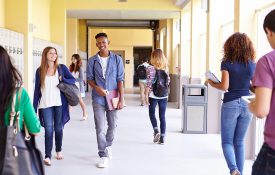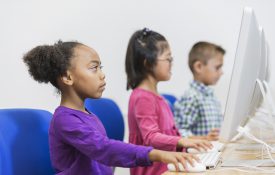-

Attending the “Best” High School May Yield Benefits and Risks for Students
Data collected over a 50-year span suggests that selective schools aren’t uniformly beneficial to students’ educational and professional outcomes in the following decades.
-
Preparing Teachers for the Unexpected
Up-and-coming teachers are receiving training that leaves them ill-equipped to handle the unexpected challenges they will encounter in the classroom, says APS Fellow Daniel Willingham.
-
Inequality Squares Up With Brain Function, Behavior
Findings on the cognitive, behavioral, and emotional effects of scarcity and discrimination are detailed by a panel of experts in brain development, addiction, decision-making, and attitudes about wealth distribution.
-

Study Links Children’s Eye-Hand Coordination with Their Academic Performance
New findings signal an important relationship between children’s ability to physically interact with their environment and their cognitive development.
-
New Research From Psychological Science
A sample of research exploring delay of gratification in children, visual darkness and perceived risk of disease, and the sunk-cost effect between people.
-

A New Approach to the Marshmallow Test Yields Complicated Findings
A new study on the classic “marshmallow test” suggests that the widely studied link between children’s ability to delay gratification and their life outcomes is heavily influenced by social and economic backgrounds.

